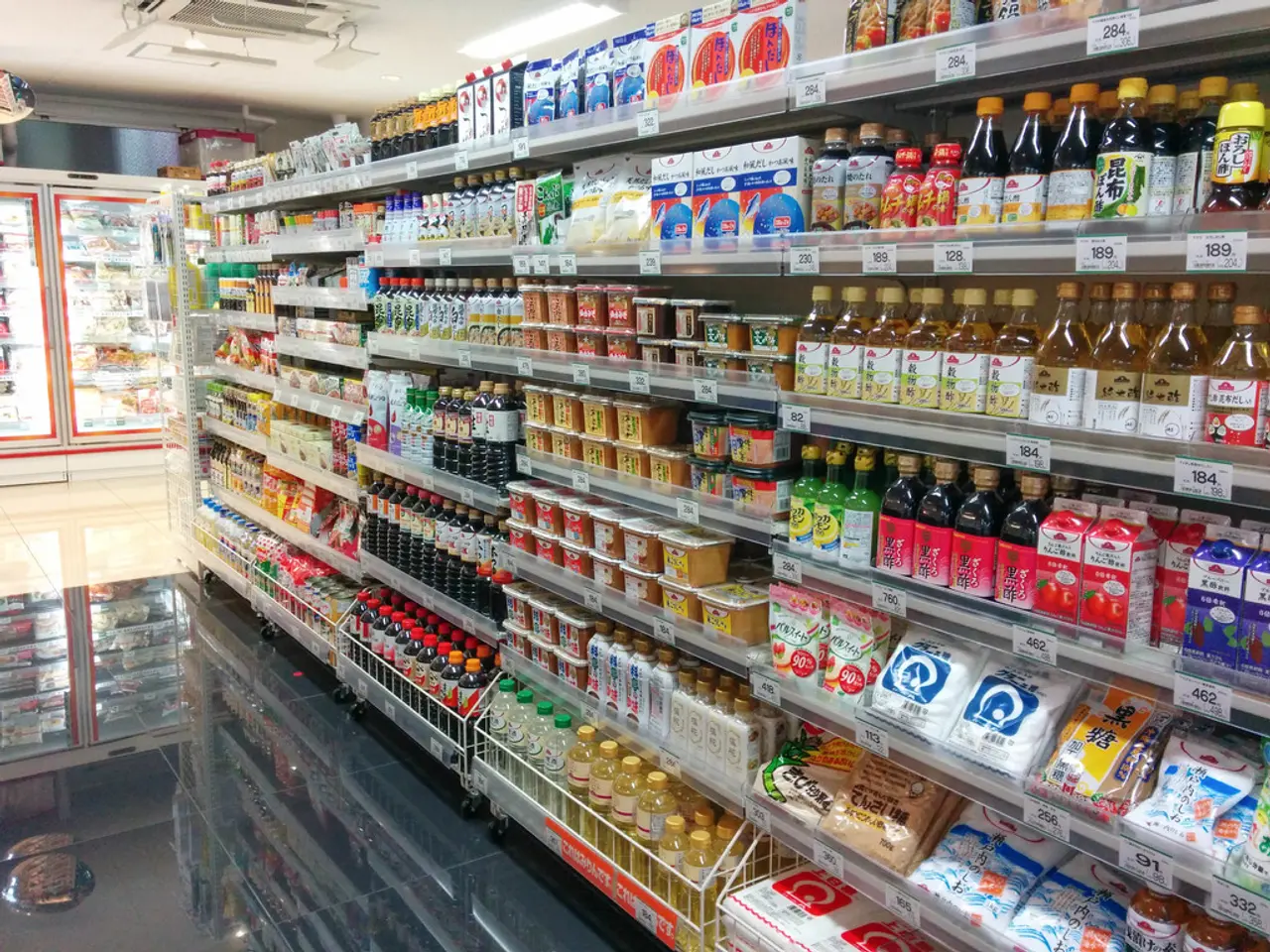Multinational corporations under scrutiny for human rights issues and supply chain practices, with Candriam highlighting seven prominent companies in question
In an attempt to shed light on the level of human rights protection in the food supply chain, asset management company Candriam conducted a comprehensive study. The research combined supply chain data reported by Nestlé SA on its website with data communicated to CDP Forest.
The study, however, did not reveal any new information regarding the level of human rights protection in the food supply chain. It focused on Nestlé SA to examine the coffee and cocoa supply chain, and found that between 21% and 30% of the company's 2021 revenue depends on coffee.
The current challenges in gathering information and analyzing human rights risks in the food supply chain, as highlighted by the research connected to Candriam, center on the complexity of the supply chains and evolving regulatory environments that affect due diligence processes.
One of the key challenges is the complexity and opacity of supply chains. Food supply chains, such as in cocoa production, involve multiple layers of subcontractors and intermediaries, making it difficult to track and verify compliance with human rights standards like the prevention of child labor.
Another challenge is the regulatory changes and enforcement weaknesses. Although recent EU regulations mandate companies to prevent human rights violations, enforcement has been weakened by legislative relaxations, such as exemptions of many intermediaries, higher thresholds for application, and softer sanctions.
Moreover, pressure from industry lobbyists has led to diluted obligations, creating additional hurdles for organizations trying to accurately identify and address human rights risks in their operations and supply chains.
Genuine analysis requires not just compliance with regulations but also a deep reevaluation of production chains and more conscious choices by corporations and consumers. This extends to verifying product origins, certifications, and companies’ social responsibility commitments, which requires reliable data collection and analysis tools.
The agri-food sector is under scrutiny for human rights issues in supply chains. However, there is a lack of international standardization of reporting requirements in the sector, leading to a lack of transparency. For instance, only 3.2% of 97 food & beverage companies evaluated by the Alliance for Corporate Transparency have made their supplier lists from high-risk supply chains public.
It is important to note that the study by Candriam did not provide any new information regarding the percentage of food & beverage companies that have made their supplier lists from high-risk supply chains public. Additionally, the study did not evaluate the exposure of other consumer goods companies to human rights risks in their supply chains, beyond the seven companies previously mentioned.
In conclusion, the main difficulties lie in the limited transparency of supply chains, partial regulatory frameworks with weakened provisions, and the influence of powerful industry interests, all of which complicate the accurate gathering and analysis of human rights risks in the food sector according to the research involving Candriam.
- Despite the comprehensive study by asset management company Candriam, there is no new information about the percentage of food and beverage companies disclosing their high-risk supply chain supplier lists.
- The complexities of business operations, coupled with ever-changing finance regulations, continue to pose significant challenges in ensuring business practices, particularly in the agri-food sector, adhere to human rights standards.




